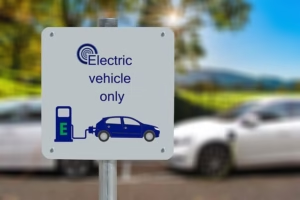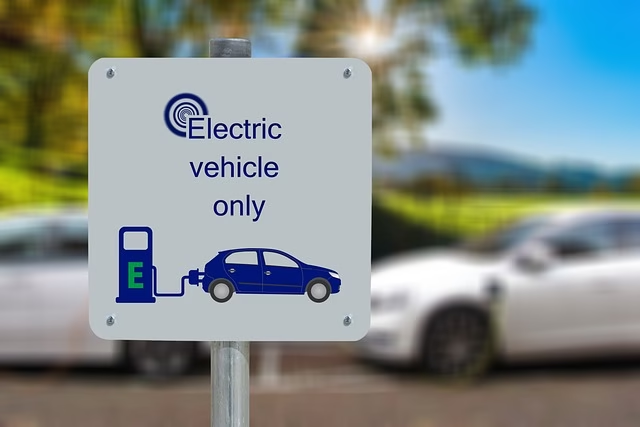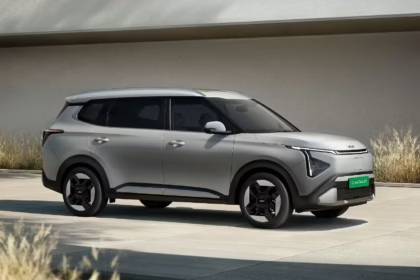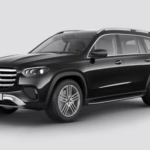A new EV Policy has been declared in the state of Delhi, and many of you have a petrol- or diesel-powered vehicle. But it’s time you say farewell to all of your two-wheelers and four-wheelers and switch to electric cars, as the EV policy states that all vehicles should be electric in Delhi till August 2025.
The government of Delhi might ban all-electric cars, and it’s all for your betterment and the environment. Of course, you might be saying goodbye to your old favorite petrol vehicles. Still, you have a much better option awaiting you: increasing the standard of living and promoting a healthy lifestyle.
All these changes are being made to stop the drastic air pollution in Delhi. This bold EV Policy declared by the government is part of Delhi’s draft Electric Vehicle Policy 2.0. If this draft EV policy is passed, it will affect not only cars and bikes but also every vehicle powered by petrol and diesel because this EV policy targets every car powered by gasoline & diesel.
There is a high chance that this draft could be effective on August 15, 2025. Once it is passed, Delhi will only issue permits for electric autos. As for old auto rickshaws powered by CNG or any over 10 years old, they must be replaced or rebuilt.
This EV Policy applies to the public as well as vehicles used by government agencies such as the New Delhi Municipal Council (NDMC), Municipal Corporation of Delhi (MCD), and the Delhi Jal Board (DJB). These vehicles must become fully electric by the end of 2027.
As the EV policy comes into force by 2025, the Delhi government will stop registering bikes, cars, or any vehicle powered by petrol or diesel from August 15, 2025.

Switching to Electric Vehicles form Petrol
As a developing country, India is witnessing many innovations and developments right now, including switching vehicles from petrol /diesel to EVs as per EV Policy. That significant change itself is on the ladder of growth. Even people accept this eco-friendly change with an open heart to reduce air and noise pollution.
India has seen almost everything quickly, such as demonetization, pandemic, and development( GST) and now EV Policy for electric vehicles. As citizens of India, we are ready to welcome this transition, which will open several new opportunities for Delhi people.
Still, many consumers of electric vehicles are showing another valid concern to not obey the EV Policy: the possibility that their battery might run out of charge before reaching the charging point or before reaching their destination.
However, EVs have much stronger performance than ICEs; they consume less energy and cover the same distance, and because of that, they are cost-effective, which helps you save money and time. Using an electric vehicle saves thousands of rupees each year because you don’t have to fill your tank with fuel.
Why is now the best time to make the switch?
Many EV Policy benefits indicate that now is the best time to switch to an EV from a petrol vehicle. It is cheaper, needs no regular maintenance, and saves money on fuel or gas; it can be charged with a charger as you charge your mobile.
Those who are using a petrol car are broke because they have so many unnecessary tasks to do; they have to service their car and bikes, and they have to fill the gas or fuel in their vehicles; on the other hand, those who are using the electric vehicle are living comfortably they don’t have to worry about next day or the fuel/gas in your car. All they have to do is connect the charging and sleep peacefully. No regular maintenance costs can save EV owners time, money, and headaches.
Electric Vehicle owners are enjoying a smoother and more comfortable driving experience. They have many benefits; for example, If you are an EV driver, you will be much happier, focused, and calmer than other gas-powered vehicle owners.
At some point, you might think that EVs are high maintenance because of their purchase price, but at the same time, let me tell you that the upkeep of EVs is lower than other vehicles powered by petrol or diesel.
What is Delhi’s EV Policy 2.0?
The most awaited Delhi EV Policy 2.0 is here. This was proposed by the Delhi government for the betterment and development of Delhi. The primary purpose was to save Delhi from air and noise pollution, a significant concern for Delhi people.
EV Policy facilities that allow us to operate them efficiently. This has a positive impact on users’ investments in EV bikes and cars. This step is going to bring a powerful change in tech society and the entire country as well.
This draft is expected to be in force by the end of April. As soon as it is in force, you will see the change in the air; I mean that the development will be visible with the help of the government and the citizens of our country. Those petrol bikes and cars will see their end soon.
The EV Policy report says that those CNG autorickshaws also have to rebuild or convert their vehicles into EVs to be on the road. The Delhi government promotes the mass consumption of EVs across a broader spectrum so that the policy is in force and a large number of people are prepared for this change.
Incentives for Switching from Petrol to Electric.
India is going electric. It benefits the environment, saves your pocket, and even pays you to go electric—those existing incentives, which are Rs. A 1.5 lakh tax deduction on EV loans will remain the same because that is more than enough.
India is the third-largest startup ecosystem, with the participation of 43 percent of women all over the country, and the goal is to encourage more engagement and involvement with the policy.
We can see that under the EV policy, you will receive Rs. 15000 per kWh of battery for bikes, which is nearly half the price of your Vehicle. It has a direct discount on the Vehicle from a specific dealer so that you can save tax at the time of purchase. You will also get the incentive when re-registering your Vehicle from petrol to EV.
Subsidy as per the state:
Delhi has Rs. 1.5 lakhs for cars and Rs 30,000 for bikes, which is the highest subsidy currently compared to others. Maharashtra and Gujarat have subsidies between 10k and 20k for EV bikes and Rs 1.5 lakh for cars, respectively.
What to do with your old bike?
Everyone who owns a bike is concerned about their old bike because of EV policy.
What to do with this one? How to purchase a new one? Can I replace the old one and get the new EV? How do you get the maximum price, and so on?
Here is the solution to your every desired question: go to any website that provides you with the correct trade value of your bike, scour the database to find out the maximum value you can get by selling it, but yes, the actual value is decided based on the condition of your bike once you know the maximum value of your Vehicle chooses wisely. Who to sell, and with those earnings, you can buy a new EV.
It is possible that you don’t have to add any more money to get the bike because the incentives and subsidies are more than enough to get a new EV. For a subsidy, you might need the certificate of scrapping, which will help you to get the EV with a subsidy.
However, if you love to drive your old bike or have your first bike and don’t want to sell it, you have another option: rebuild it and convert your petrol-powered bike into an Electric Vehicle.
How to apply for an EV Policy under the subsidy scheme?
You can apply for a scrapping certificate from a Delhi Transport Department-approved scrapping center; you must submit all your documents related to the Vehicle. Once you submit all the documents, you will get the certificate with the Unique identification number.
Visit the showroom or registered partner that has bikes on the Delhi EV subsidy scheme list and select a bike from that showroom.
Now, give the scraping certificate to the EV dealer when you purchase your wishlist EV. The dealer will upload all your documents, including the scraping certificate, to the Delhi EV portal.
Once the documents are uploaded, the subsidy will be deducted automatically or credited to your account later. It will be deducted once the process is done.
FAQs:
Is there any ban on petrol-powered bikes from when it will be in force?
As per the EV Policy, banning petrol vehicles is not that easy at once because there are thousands and lakhs of autorickshaws and bikes in Delhi itself, and banning them at once will cause panic and rush in society, as it was at the time of demonetization. Rather than this, the Delhi government wants a smooth and facilitated transition from petrol to EV, and for that, it has given enough time to bike owners to switch and promote the changes.
Is it possible to use the same petrol bike after the ban through EV Policy?
Yes, it is possible to use your petrol bike on the road, but it has to be roadworthy. It should be no older than 10 years and in good shape so that it doesn’t harm the environment.
How can I scrap petrol cars over electric cars in Delhi?
To scrap your car in Delhi over electric cars, you must visit a Delhi Transport Department-approved scrapping center and apply there to scrape your vehicle. For the application, you will need some documents
- ID proof of the vehicle owner.
- Bank details for the subsidy transfer.
- Bike RC
- Passport-size photo
- Once you submit all the documents, you will get the certificate with the Unique identification number.
Is there any gender appreciation for EV buyers?
Yes, to appreciate women’s participation, the government provides a subsidy when purchasing an EV for Women Buyers. The incentives are up to ₹36,000, whereas for General buyers, there is a subsidy of ₹10,000 per kWh and a round of ₹30,000.
Will there be restrictions on private car ownership?
Yes, under the EV policy, those who own two vehicles can only purchase a third when it is an electric vehicle, none other than that. Individuals owning two cars can buy only a third if it’s electric.





